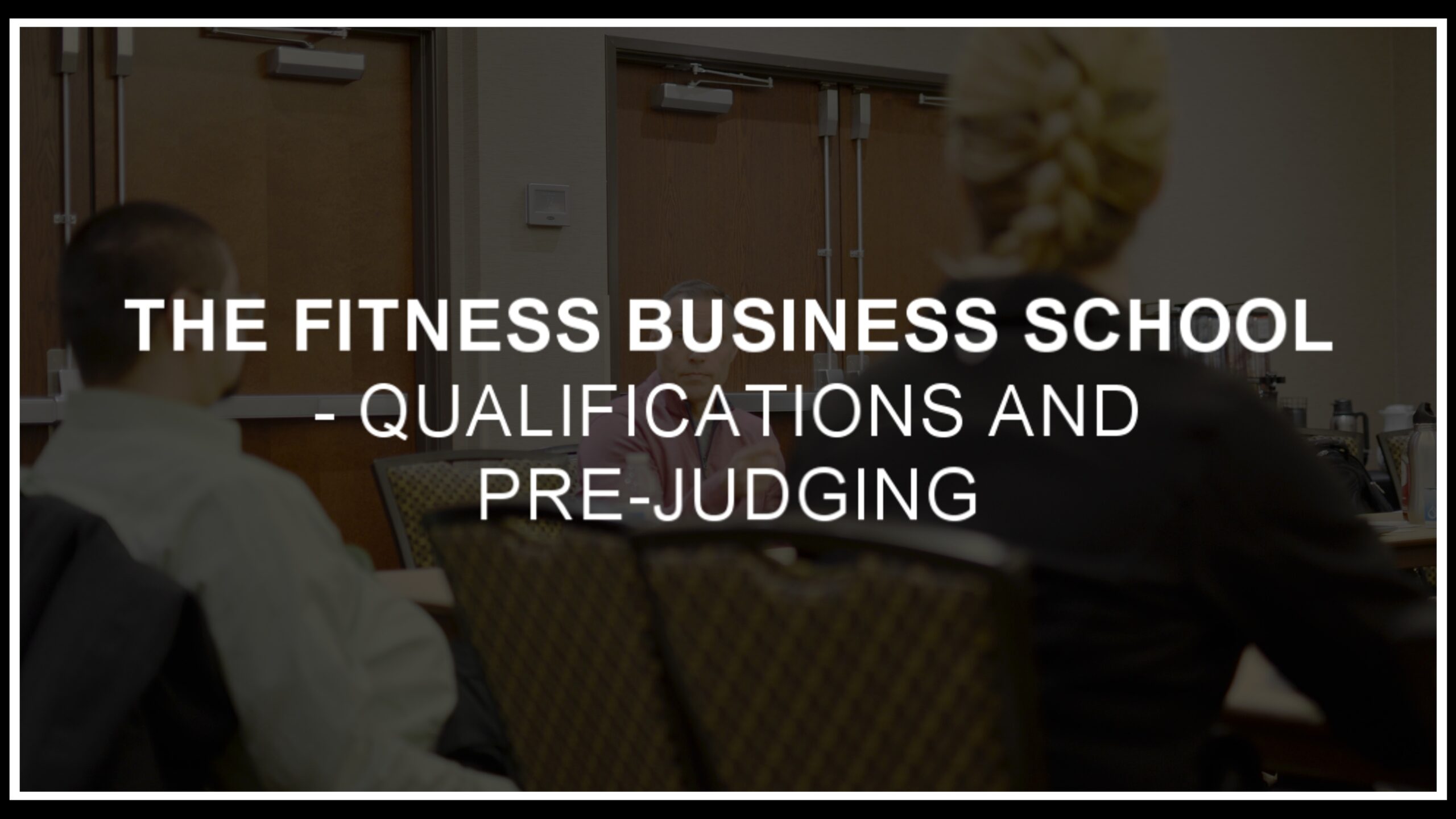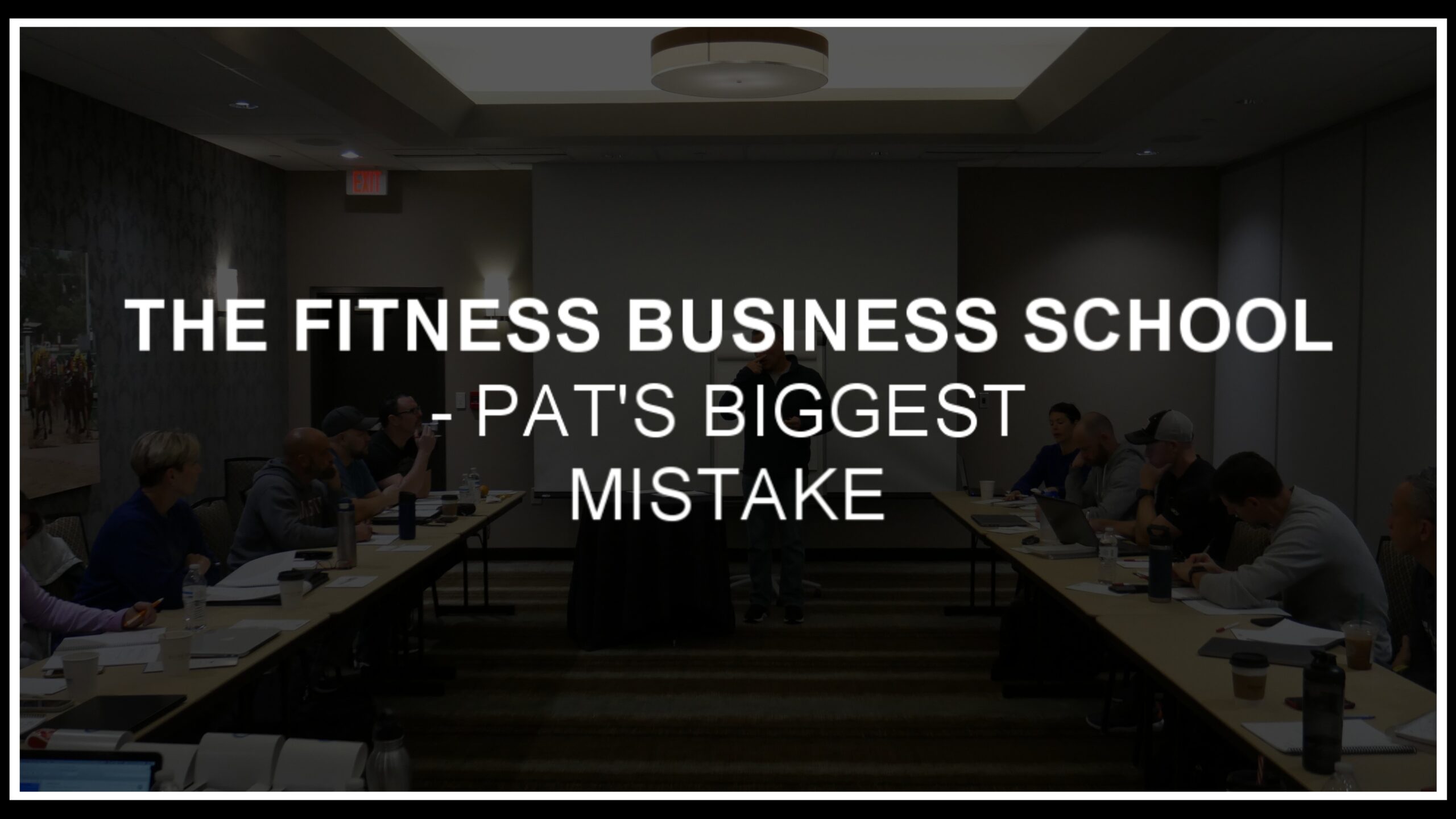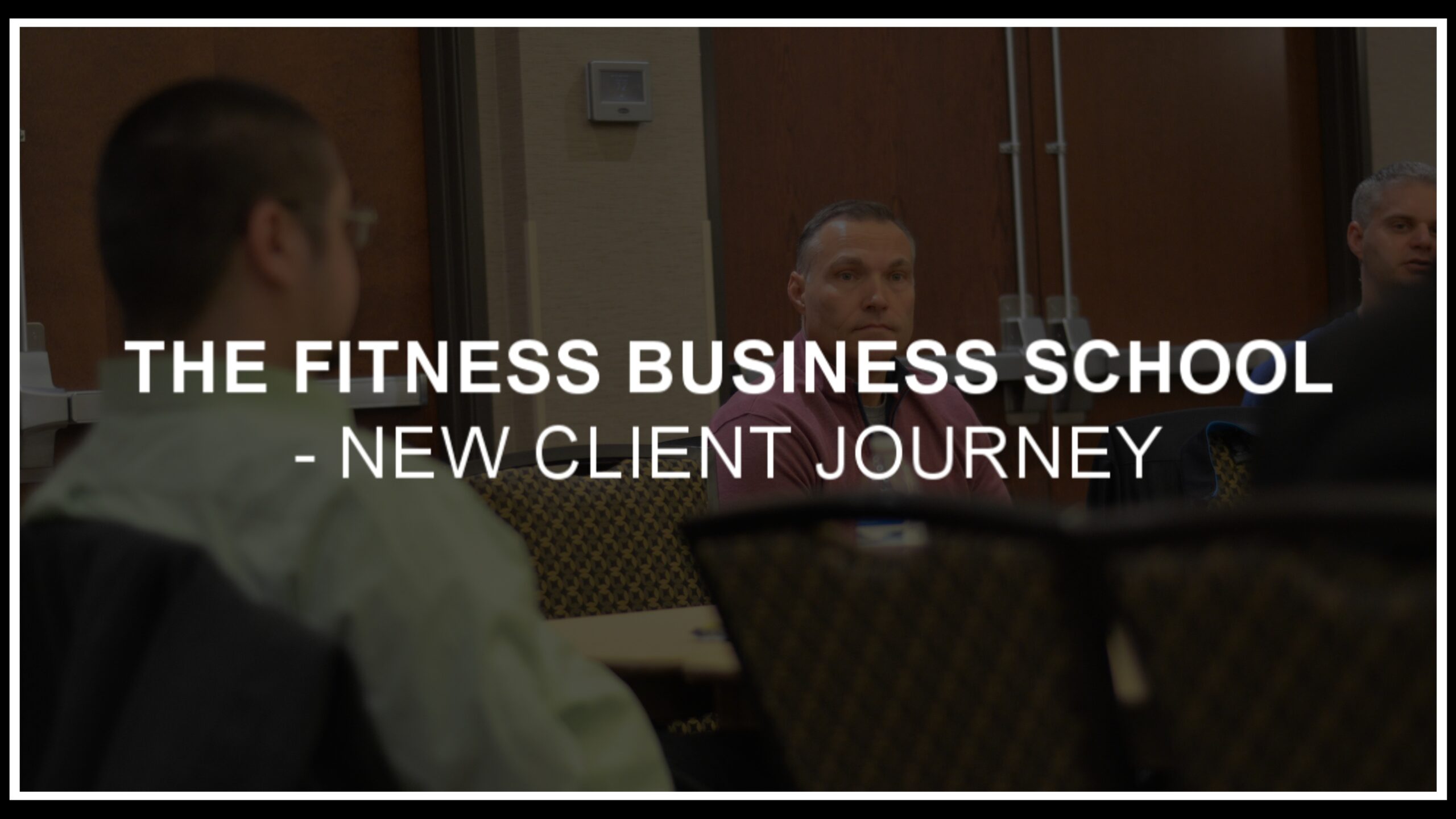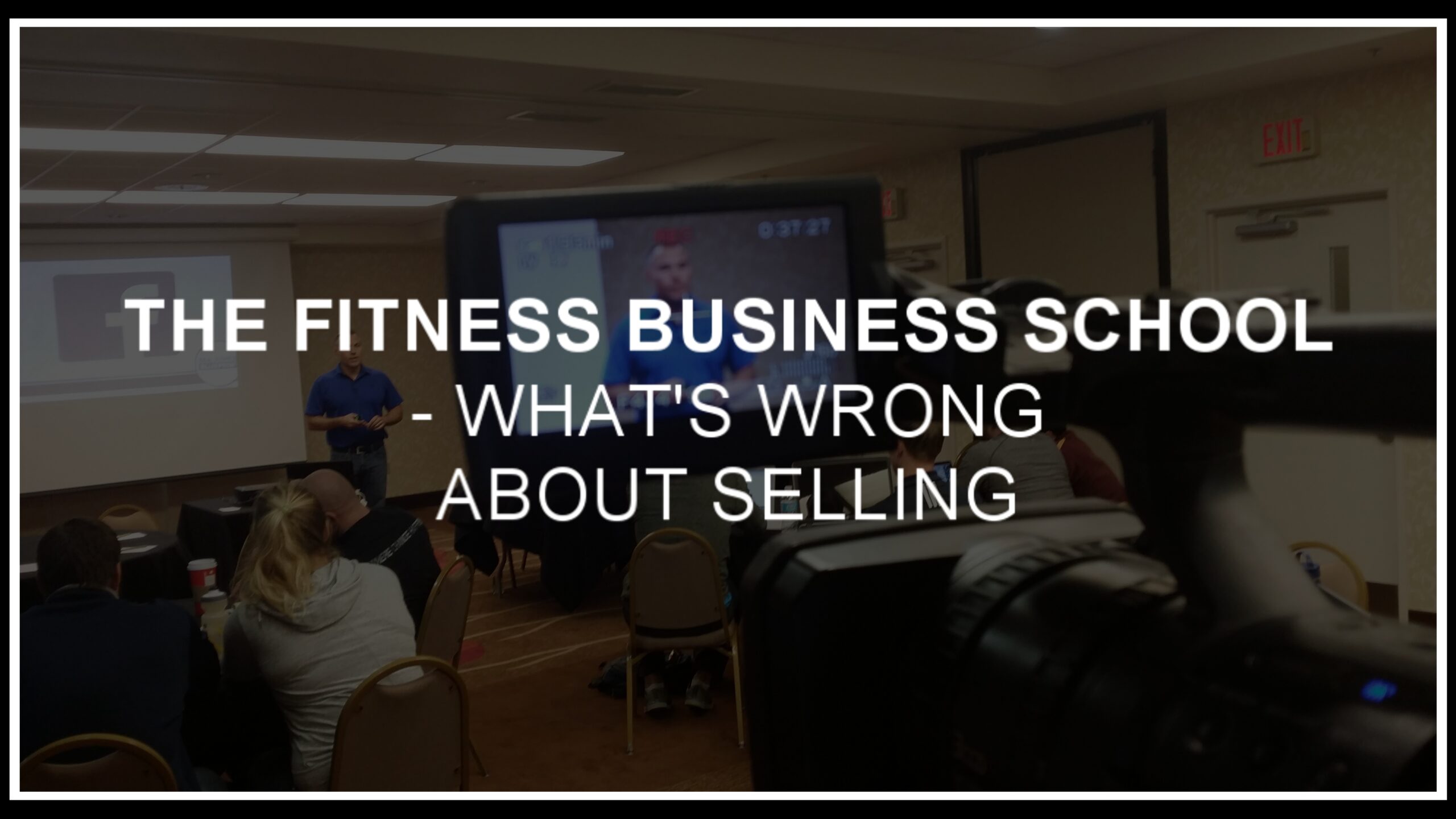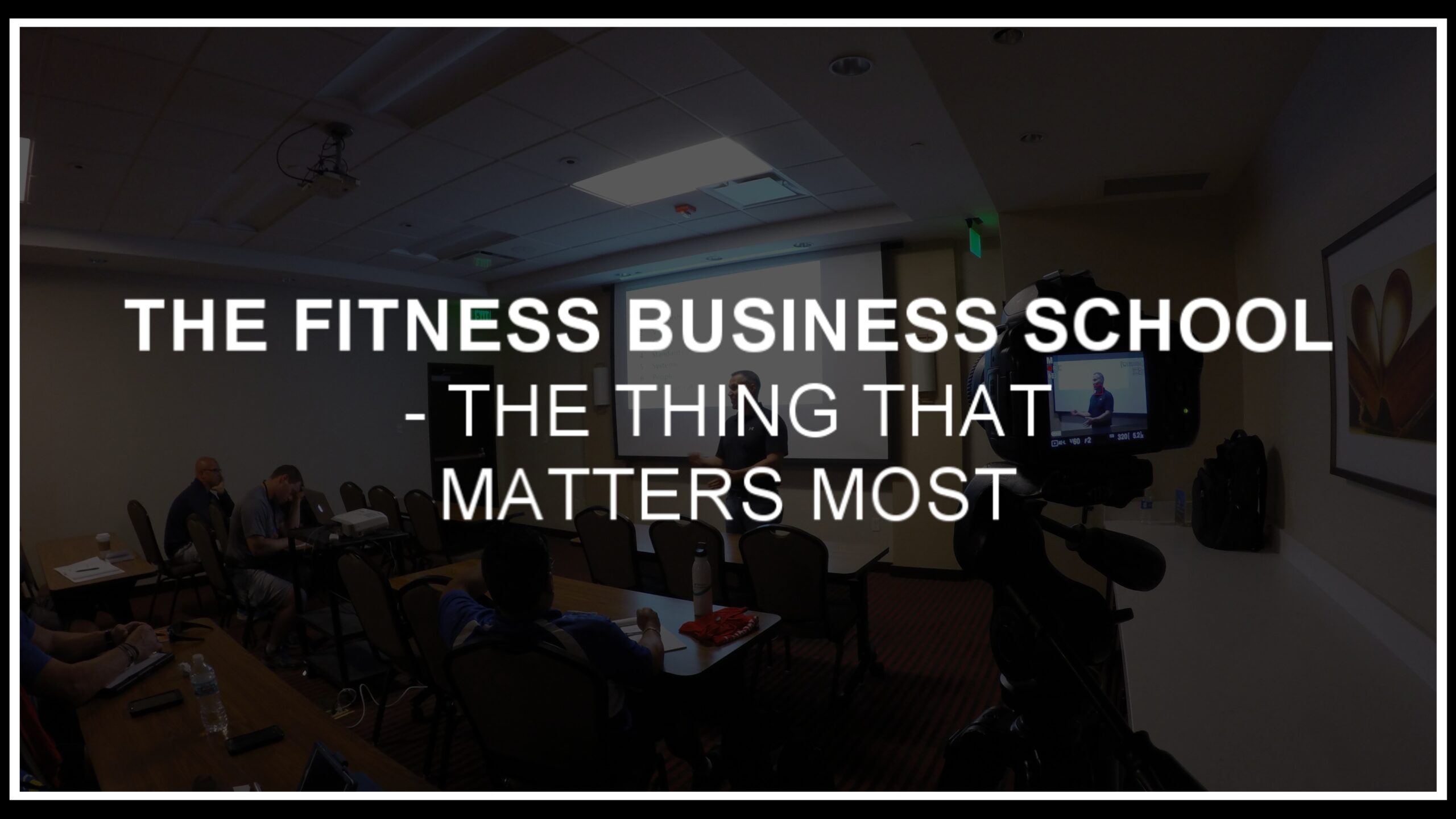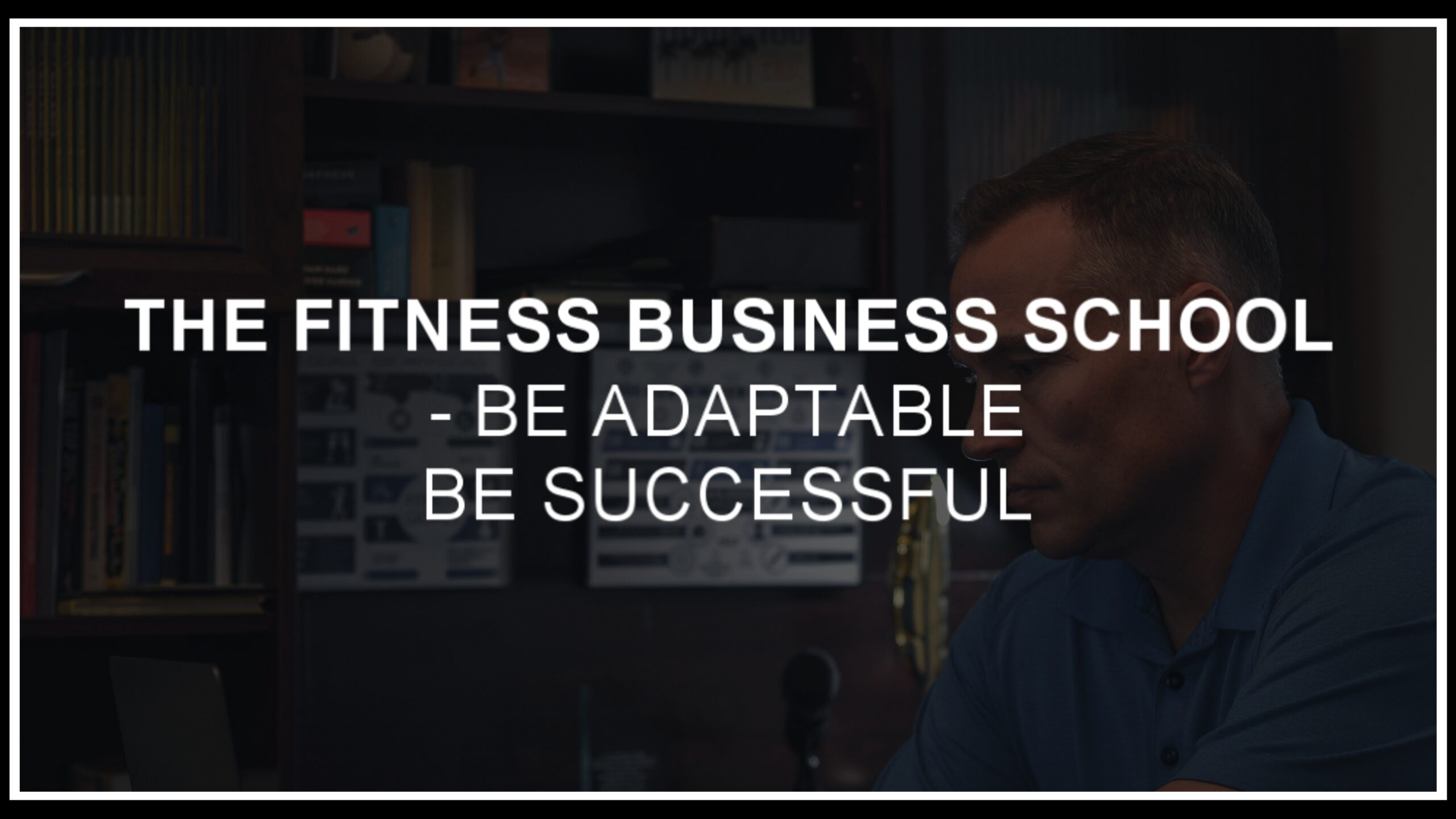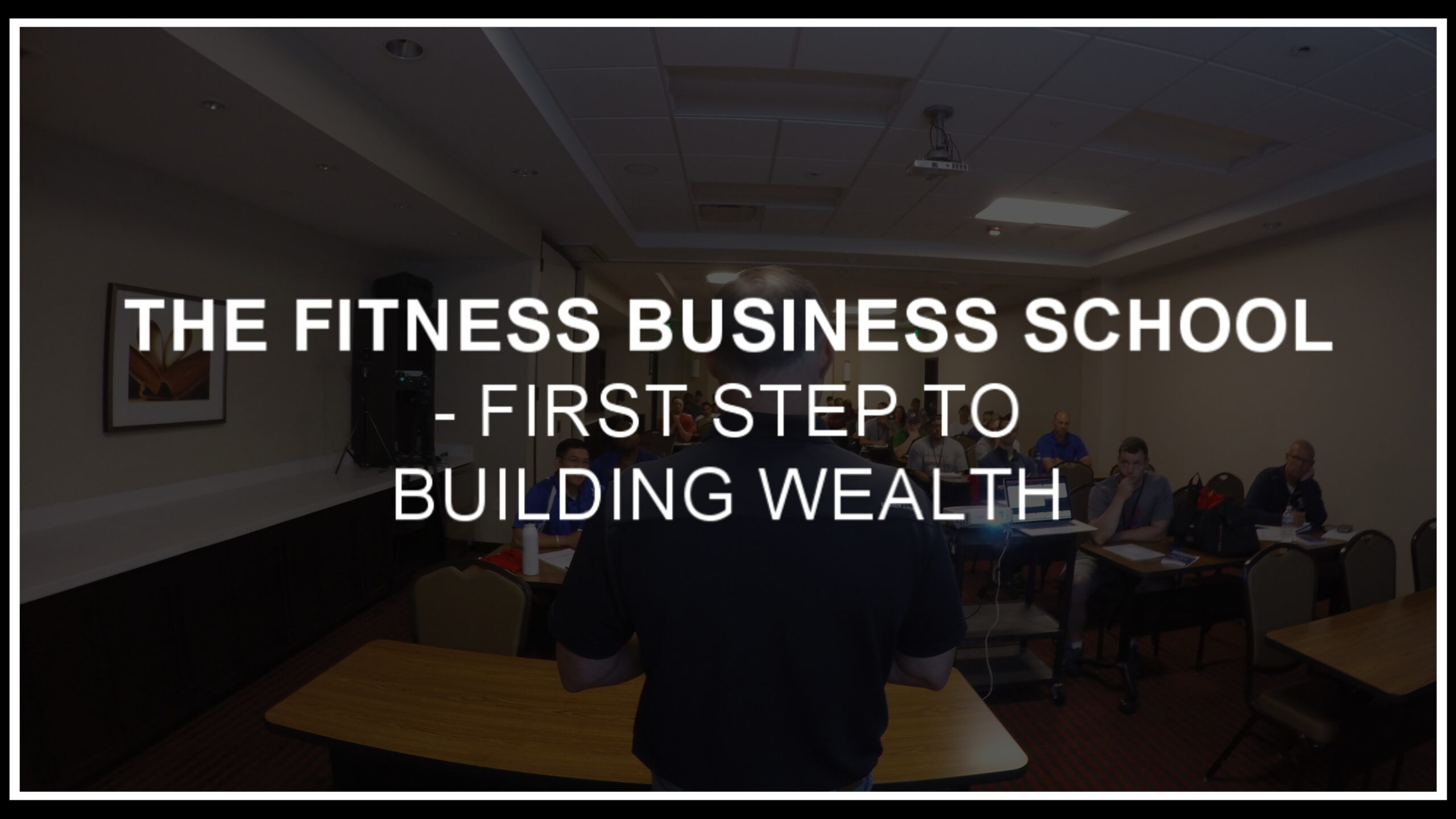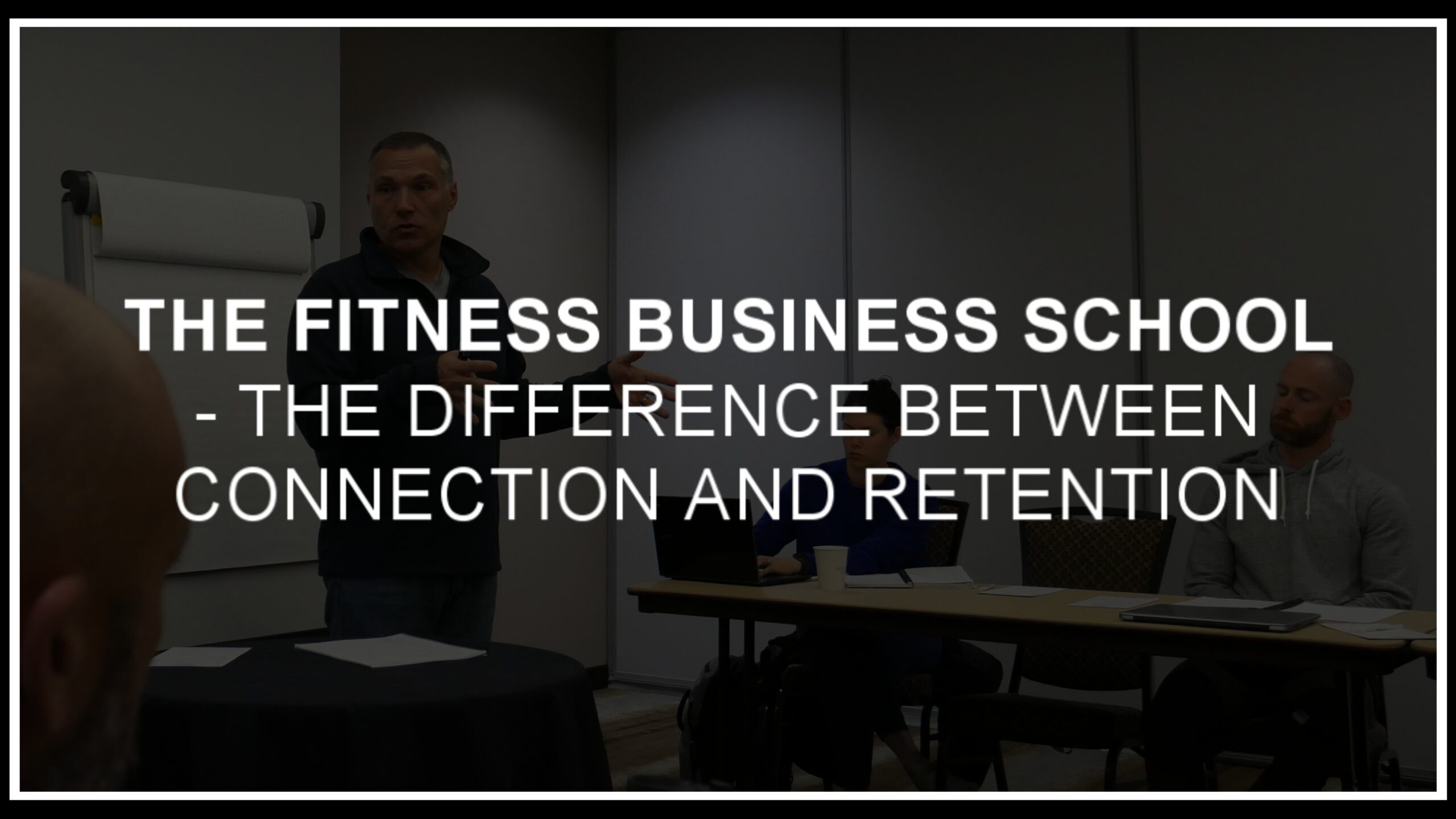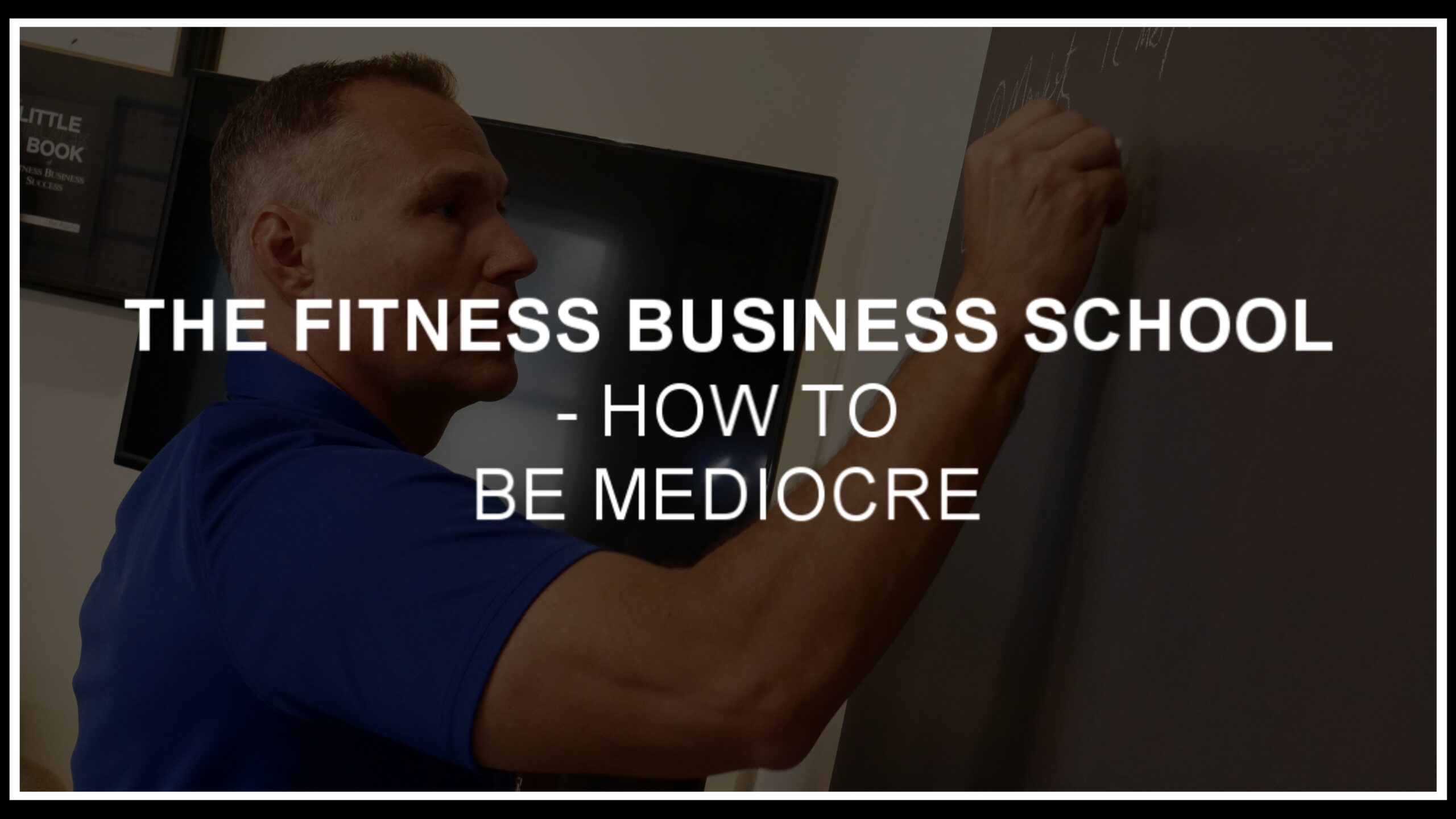Show Notes
- Don’t get obsessed with your thoughts on prospect’s money
- Appearances can be deceiving
- You aren’t the one to decide if your service is worth it
- Looks aren’t necessarily a qualifier
- Desire is a stronger pre-qualifier
- Your attitude is a roadblock
- Make perceived value higher than actual value
Full Transcript
Hey, Pat Rigsby here and in today’s episode I wanna talk with you about qualification and prejudging. Let’s get started.
Welcome to the Fitness Business School podcast, the show for fitness business owners who want to grow their income, increase their impact and improve their lifestyle. Be sure to listen to the end of this episode because we have a brand new special offer exclusive for listeners. So stay tuned.
Invariably, when I talk to somebody about selling, they talk about how they want to qualify leads and how they want to only talk with highly qualified prospects and all that stuff. And often what they’re suggesting is that they just want to know that somebody can pay. And I think there’s plenty of
validity to this, but I want to get a couple things kind of covered here in this episode where qualification and prejudging about the ability or willingness to invest financially, they’re not exactly the same thing.
So let’s talk about the money side of this before we go any further, because I, like many people in the industry, was very guilty of this. Early on in my sales career, in the selling personal training world, I remember vividly kind of peeking in the parking lot when I knew I had a consultation coming in and
seeing what kind of car somebody was driving or whatever else to try to get a, a handle on the their means, right? Their financial means to buy. And something really kind of changed my take on this at one point for the better, right? It was a, a routine of mine. I used to kind of create these little internal
competitions with myself where I would say, okay, there are certain things that, that I have to do every day that are tied to production. And I would just create this internal competition that I had to do it.
And one of them was on Saturdays I had to sell one thing. I had to sell one thing no matter what, didn’t matter if it was the middle of July and the gym was empty as could be, I had to sell one thing. And so on a Saturday in the summer, I had one scheduled sales appointment. And typically on my,
in my world, I was shooting for two to three on Saturdays and I would create this little internal competition. I didn’t care if I just sold one session. I couldn’t leave the gym till I sold something. And I see this man and woman walk in, and the man is looking very disheveled. He’s got holes in his T-shirt,
he’s wearing work boots, and the woman who’s with him doesn’t look a whole lot more prepared to be in the gym than he does.
And so I am thinking, man, I’ve got my work cut out for me here. Like, and, and I’m thinking, okay, I’m going to downsell them. Like I’m gonna only be able to sell them like our lowest tier program, which was basically we will design your program each month so you know exactly what to do when you come in the
gym and we’ll walk you through it each month. So there’s like one allocated session plus program design. And that was where I had kind of gone mentally, is I sat down with them. And so we go through the questionnaire, we go through the discovery process, I take them on the training floor, take them through
some exercises, and I do a good job. I certainly don’t mail it in because I’m thinking, man, I’ve got to really knock this out of the park to even get them to spend $50 a month on, on this, on top of their current gym membership.
Because to say that the gentleman looked like one step above homeless probably wouldn’t be unfair. And so we get back, we sit down and we start talking about programs, and I go through the entire sales process as it’s scripted. I don’t jump to the, the lowest investment that we have. I go through, Hey, here’s what it
costs to come in three times a week. It typically is for people who have these needs and these goals and just kind of work my way down the list and I leave it open ended and say, okay, which one do you want to get started with? But he proceeds to say he wants to do a year paid in full of our most expensive
program for both he and his wife. And to say that my jaw was about to hit the floor, probably wouldn’t be too much of an exaggeration.
But then he explained to me that recently his mother had passed away and he inherited some money. But one of the things when she was sick, she had told him she wanted him to take better care of himself. And so this was kind of his commitment to her, and he was going to invest some of the money he inherited to
do this. And it, it really kind of stopped me in my tracks. And I thought about how people would get prejudged and how people would get, get kind of, I guess, pigeonholed into that person doesn’t have money or that person can’t afford this. I mean, I remember going into a car dealership and
anybody who’s ever kind of spent any time around me in person knows that I tend to wear a lot of t-shirts, a lot of gym shorts or in the winter sweatpants and that sort of thing.
Like I’m certainly dressing for comfort, not fashion. And I just pop in a car dealership and I wanted to purchase a car. And frankly, at that point in my life, I don’t think I had ever purchased a brand new car. I’d always bought cars that were like a couple years old so I could manage the
depreciation that happens when you buy a new car and you fill out this application and I fill out what your monthly income is. And so the salesman starts to walk
off and he comes back and he is like telling, he’s like, Mr. Rigsby, this said monthly income, not annual income. Can we go ahead and make that change before I take it back to my finance guy? And I said, well, that is my monthly income.
And it kind of hit me just that appearances are not necessarily the prerequisites for somebody’s ability to invest. And this guy just looked at me and thought, man, you know what he put down that he works in fitness and he’s walking in here in a gym shorts and a T-shirt, and there’s, you
know, I mean, so I think he was assuming that, and I was probably not in a very strong financial position. And that assumption that so many of us fall into is a real obstacle in building a better business and getting clients. Because qualification, in my opinion, is as much about desire as it is about anything. And if you
find somebody with a really strong desire, then they’re far more willing to spend a higher percentage of their available resources than if somebody doesn’t have a strong desire. If it’s not important to somebody, there are plenty of things that I could afford that are not important to me that I have no interest in
spending $5 on, but if it was truly important to me, I might be willing to spend $5,000 on it.
I remember my neighbor when we moved to Louisville was one of the original founders of Long John Silvers, and he was a very wealthy guy, and I would talk to him very regularly about business stuff, and I got to know him well enough to know that, I mean, this was a very wealthy man, and
you couldn’t have got him to pay $10 a month to go to Planet Fitness. He did not value that at all. So it didn’t matter if he had the financial means to buy the most expensive program anybody could roll out. It mattered that it wasn’t important to him. It wasn’t something that he had a strong desire for. However, I
have sold personal training to people who were in far worse financial positions. I mean, I remember doing sales training. We had a manager of our personal training at our health club that I owned, and he is now a very well regarded guy in the marketing world.
A very, like, he speaks at big events, he is very well known, but at the time, he just couldn’t sell training, just couldn’t sell it at all. And it, it made no sense. It made no sense to me at all. He knew per persuasion he knew how to sell, he knew the mechanics of it. He knew the, like he had a lot of
things to offer. I mean, he was a, an incredibly well-rounded, talented guy, but he just couldn’t get people to say yes. And so he would tell me, well, they’re all tire kickers. They’re not serious. We have a bunch of people in here that just aren’t, they’re, they can’t do this. They can’t afford it. So I said, set me up for
appointments. And I came down, I had six appointments, and literally three of the appointments were with people who worked at McDonald’s, and two of them were people who cleaned houses for a living.
And then one was somebody who was unemployed, and it was like, he wanted to make this statement that there was no way that these people could buy training, and that was who he was being inundated with on a daily basis. Well, so we, we sit down and all six of them I did a consultation with
individually, all six of them bought personal training because the point was to me, like, we are going to uncover their desire. We are going to find out why they’re giving us their time, why it’s important enough for them to be here. And to be fair, I don’t know if their desire in all six cases was strong
enough that they should have bought in that moment. But at the point, at that time, I was trying to prove a point that if the desire was big enough, they would find a way.
And that’s the thing that a a lot people really miss the mark on. They’ll have the hay, are you, on a scale of one to 10, how ready are you to invest in this? And how much can you invest in? Like, man, they need to know what this is. They need to know how this is gonna change their life. They need to
know that you can solve their problem. And if the desire is great enough, then people will find a way I can find myself in a consultation with somebody trying to sell me something. And I will go through these as a consumer periodically, and I can feel that barometer shift during calls or during meetings where you
know, Hey, this is, this sounds more valuable. I would be willing to pay more for this. Or, you know what? There’s no way I’m gonna buy this.
And it all has to do with how valuable this person is making whatever they’re selling in my eyes. You know, it, it is perceived value. The actual value is what we’re willing to pay. The perceived value is what we think something’s worth. So the idea here is if you want to create more desire, you have to create more
perceived value. Even if I’m not in a super strong financial position, if you make me believe something’s worth a thousand dollars a month and you’re gonna sell it to me for 200, there’s a much better chance then I’m gonna find a way. So when you’re thinking about qualifying people, part of this is, are
you finding people who have a strong desire or have a big need? Are you doing a great job in building up the perceived value in their eyes so that they’re prepared to invest more so that it’s more valuable to them or more important to them?
If you are, you’re gonna be way better off. As we see the landscape in our industry become more and more competitive, and as we see a lot of people start to almost seem like a commodity versus a really strong solution, I would encourage you to think more about qualifying people by desire
and building up the perceived value in your business, and not trying to prejudge people when it comes to finances as a means to get more of the right people in your business to make more money and to get more clients.
Thanks for listening to this episode of The Fitness Business School.
Before you go, I have a quick announcement:
One of of the things that we’ve been doing with our current clients is taking them through this Ideal Business diagnostic and really what it is, this checklist that allows you to pinpoint exactly what your business needs next so you can keep improving, keep growing, and build a business that you love to own, one that pays you well, one that allows you to have the impact you wanna have and one that allows you to have a lifestyle that you truly enjoy.
In this diagnostic, we walk through everything and we do an evaluation and can instantly pinpoint what you need to do next to build that business that you want. I’m going to extend this opportunity to get on with either me or my team and take you through this evaluation and fix your business’s most vital needs fast.
So if we take you through this, you’re gonna be able to make those vital changes that you need to finally have what I call your Ideal Business. If you’d be interested in going through this entirely free, risk-free diagnostic with us and learn what you already have in place, what you’re doing well and where are your greatest opportunities for rapid improvement are just shoot me an email with diagnostic in the subject line to [email protected].
Again, an email to [email protected] with diagnostic in the subject line will get you scheduled and take you through this evaluation to help you build the business you want.


